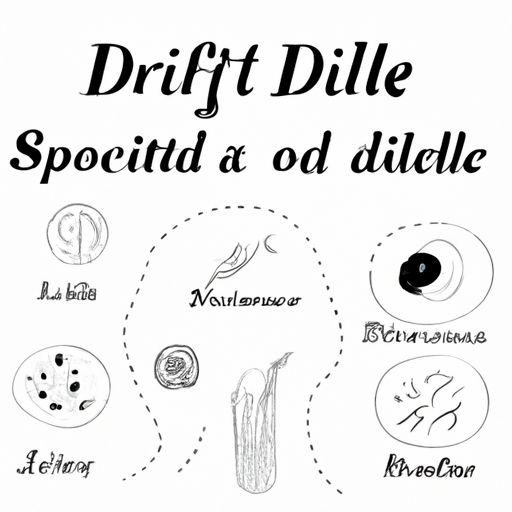How To Maintain A Good Diet In Life
How to Maintain a Good Diet: Breaking Bad Habits and Embracing a Healthier Lifestyle
Everyone, at some point in their lives, grapples with bad habits. These habits could range from a struggle in a substance abuse treatment center, a battle to quit smoking, or even a simple inability to maintain a good diet. Unfortunately, these habits can take a toll on our health and cause disruptions in other aspects of our lives. They can lead to financial strain, cause disagreements with family or friends, and most importantly, they can jeopardize our health.
However, the good news is that it’s never too late to break free of these habits and start on a journey towards healthier living. The first step in this journey starts with the conscious decision to maintain a good diet. And here’s how to do it.
The Role of Alcohol in Your Diet
Most of us enjoy a good drink every now and then. Whether it’s a toast at a celebration, a casual get-together with friends, or just a way to unwind after a long day, alcohol often plays a significant role in our social lives. However, the overconsumption of alcohol, or ‘binge drinking’, can have serious health implications.
When trying to maintain a good diet, it’s crucial to control your alcohol intake. This doesn’t necessarily mean you have to eliminate it completely, but moderation is key. By limiting your alcohol consumption and only indulging when necessary, you can significantly improve your overall health, both physically and emotionally.
Nutrition: The Cornerstone of a Good Diet
Maintaining a good diet doesn’t just stop at cutting out alcohol. It’s also about incorporating healthy foods into your meals, such as fruits and vegetables. Portion control is another crucial aspect to consider. It’s not just about what you eat, but how much you eat as well.
For example, if you love pasta, instead of having a huge bowl, try reducing the portion size and adding a side of vegetables. That way, you’re not only reducing your carbohydrate intake, but you’re also adding essential nutrients to your meal. The same goes for other food groups. Moderation and balance are the keys to a healthy diet.
Conclusion
In conclusion, maintaining a good diet comes down to making conscious decisions about what we consume. It’s about breaking free from bad habits, such as excessive alcohol consumption, and embracing healthier ones like portion control and a balanced diet. Remember, it’s not a sprint but a marathon, and every little change counts.
By taking these steps, you can not only improve your health but also your overall quality of life. So, start today, one meal at a time. Your body will thank you for it!
| Bad Habit | Impact on Health | Suggestions for Overcoming |
|---|---|---|
| Substance Abuse | Can lead to serious physical and mental health issues, including addiction, organ damage and increased risk of accidents. | Seek professional help from a treatment center. Find healthy coping mechanisms for stress and emotional issues. |
| Smoking | Increases risk of lung cancer, heart disease, stroke, and many other health problems. | Try nicotine replacement therapy, medications, or counseling. Seek support from friends, family or support groups. |
| Binge Drinking | Can lead to alcohol poisoning, liver disease, neurological damage, and increase the risk of accidents. | Limit alcohol intake, avoid situations where binge drinking may occur, seek professional help if necessary. |
| Unhealthy Diet | Can lead to obesity, heart disease, diabetes, and other health problems. | Eat a balanced diet rich in fruits and vegetables, control portion sizes, limit intake of processed and high-sugar foods. |

Understanding the Importance of a Balanced Diet
Before delving into the nitty-gritty of maintaining a good diet, it is important to understand what a balanced diet entails. A balanced diet includes a variety of different foods in the right proportions. It should provide your body with all the essential nutrients it needs to function correctly. This includes carbohydrates, proteins, fats, vitamins, and minerals. A well-balanced diet not only helps maintain a healthy weight but also reduces the risk of chronic diseases such as heart disease and diabetes.
The Power of Hydration
Often overlooked, hydration plays a vital role in maintaining a good diet. Our bodies are about 60% water and this fluid performs many essential functions, including carrying nutrients to cells, flushing bacteria from the bladder, and preventing constipation. A common recommendation is to drink eight 8-ounce glasses of water a day but needs can vary based on factors like age, gender, and physical activity level.
Importance of Regular Exercise
Regular exercise is another significant aspect when aiming to maintain a good diet. Regular physical activity can help you maintain a healthy weight, reduce the risk of developing health conditions, and improve your overall wellbeing. It’s recommended to aim for at least 150 minutes of moderate-intensity exercise or 75 minutes of vigorous-intensity exercise each week.
Meal Planning and Prepping
Meal planning and prepping can be an effective tool in maintaining a good diet. By planning your meals, you can ensure that you’re consuming a balanced diet and avoid the temptation of unhealthy, convenient food options. Meal prepping, on the other hand, saves time during the week and makes it easier to stick to your diet plan.
Healthy Snacking
Snacking is often demonized in the world of dieting, but it doesn’t have to be. If done right, snacking can play a crucial role in a balanced diet. Opt for snacks that are high in protein and fiber, as they can keep you feeling full and satisfied between meals. Examples of healthy snacks include nuts, fruits, yogurt, and hummus.
Importance of Sleep in Diet
Believe it or not, a good night’s sleep can significantly impact your diet. Lack of sleep can disrupt your metabolism and can lead to weight gain. It can also increase your cravings for unhealthy foods. So, make sure you’re getting enough sleep each night to support your diet and overall health.
FAQs on Maintaining a Good Diet
How many meals should I eat in a day?
There’s no one-size-fits-all answer to this question as it depends on your personal needs and lifestyle. However, most nutritionists recommend eating five small meals throughout the day to keep your metabolism active and prevent overeating.
Can I ever indulge in my favorite junk food?
Absolutely, moderation is key. Depriving yourself completely of your favorite foods can lead to binge eating. It’s okay to indulge occasionally, but it’s important to balance it out with healthy meals and regular exercise.
Do I need to count calories?
While counting calories can be beneficial for some, it’s not necessary for everyone. What’s more important is the quality of the food you’re eating. Focus on consuming nutrient-dense foods rather than just counting calories.
In conclusion, maintaining a good diet is not just about cutting out certain foods or following a strict diet plan. It’s about making healthier choices, being consistent, and making small changes that can have a big impact on your health. Remember, it’s a journey and not a race. So, take one step at a time and embrace a healthier lifestyle!
Commonly Asked Questions about Maintaining a Good Diet
1. Should I completely eliminate alcohol to maintain a good diet?
No, it’s not necessary to completely eliminate alcohol. However, moderation is key. Overconsumption or ‘binge drinking’ can have serious health implications. Limit your alcohol consumption to improve your overall health.
2. What types of food should I incorporate into my meals?
Healthy foods such as fruits and vegetables should be a part of your meals. Also, consider the portion size of your meals. It’s not just about what you eat, but how much you eat as well.
3. What is the role of portion control in maintaining a good diet?
Portion control is crucial in maintaining a good diet. It helps to balance your meal and ensure that you’re not overeating, which can lead to weight gain and other health issues.
4. Is maintaining a good diet a quick process?
No, maintaining a good diet is not a sprint but a marathon. It involves making conscious decisions about what we consume and breaking free from bad habits.
A Simple Guide to a Balanced Meal
| Food Group | Recommended Portion |
|---|---|
| Fruits and Vegetables | Half of your plate |
| Protein (meat, fish, eggs, nuts) | A quarter of your plate |
| Carbohydrates (rice, pasta, bread) | A quarter of your plate |
By following this simple guide, you can ensure that you’re getting a balanced meal that includes all the essential nutrients your body needs.
Effects of Alcohol on Your Health
| Health Aspect | Effect of Excessive Alcohol Consumption |
|---|---|
| Physical Health | Can lead to liver disease, heart problems, and increased risk of certain cancers. |
| Mental Health | Can increase the risk of depression and anxiety. |
| Social and Financial Impact | Can lead to financial strain and disagreements with family or friends. |
By controlling your alcohol intake, you can significantly reduce these risks and improve your overall health.


